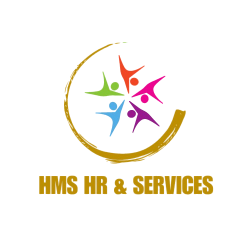IFRS 19, Subsidiaries Without Public Accountability: Disclosure, allows eligible subsidiaries to choose simplified disclosure requirements under IFRS 19 while adhering to the recognition, measurement, and presentation requirements stipulated in other IFRS Standards. These reduced disclosure requirements are expected to balance the information needs of users of eligible subsidiaries' financial statements with cost savings for preparers.
This standard will take effect for reporting periods beginning on or after January 1, 2027, with earlier application permitted.
Scope of IFRS 19:
A subsidiary is considered eligible if:
-
It does not have public accountability.
-
Its ultimate or intermediate parent prepares consolidated financial statements that are available for public use and comply with IFRS Standards.
A subsidiary is deemed to have public accountability if:
-
Its debt or equity instruments are traded in a public market or are in the process of being issued for trading in a public market (domestic or foreign stock exchange or over-the-counter markets, including local and regional markets), or
-
It holds assets in a fiduciary capacity for a broad group of outsiders as one of its primary businesses (e.g., banks, credit unions, insurance companies, securities brokers/dealers, mutual funds, and investment banks typically meet this second criterion).
Eligible entities may apply IFRS 19 in their consolidated, separate, or individual financial statements, but it is not mandatory.
The objective of IFRS 19 is to enable entities to benefit from cost savings and simplified reporting without compromising the usefulness of eligible subsidiaries' financial statements for users. However, these cost savings may vary depending on several factors, including:
-
The current accounting requirements a qualifying subsidiary applies;
-
The reporting systems and processes within the group; and
-
Other factors, such as applicable laws and regulations.
Eligible subsidiaries transitioning to IFRS 19 from IFRS for SMEs or local GAAP will benefit from harmonizing accounting policies, eliminating dual accounting records, and simplifying related systems.
Disclosure Requirements under IFRS 19:
If the recognition and measurement requirements of IFRS Standards align with those of IFRS for SMEs, similar disclosure requirements from IFRS for SMEs will apply. If the recognition and measurement requirements differ from IFRS for SMEs, the disclosure requirements in IFRS 19 are derived directly from the IFRS Standards.
Challenges in Applying IFRS 19 and IFRS 19’s Solutions for Financial Reporting Challenges
Currently, subsidiaries must prepare separate financial statements under IFRS if they intend to go public or if required by stakeholders. This can involve complex requirements regarding financial measurement and disclosure.
However, complying with these requirements can be costly and resource-intensive, especially for smaller subsidiaries or large groups with many subsidiaries. Additionally, understanding and applying full IFRS can be complex and may require intensive training for accounting staff. Subsidiary accountants may need additional training to accurately understand and apply the new standard.
The IASB’s new IFRS standard is a step toward simplifying financial reporting, allowing subsidiaries within groups to focus more on their core business activities without worrying about complex reporting requirements. However, applying the standard should be carefully considered based on the specific circumstances of each subsidiary.
IFRS 19 addresses some of these challenges by:
-
Exempting certain complex requirements: IFRS 19 allows subsidiaries to be exempt from some complex financial reporting requirements if the parent company has complied with IFRS in its consolidated financial statements.
-
Using simplified financial statements: IFRS 19 allows subsidiaries to use simplified financial reports while maintaining transparency and reliability in financial information.
-
Integrating with the group’s financial reporting system: IFRS 19 encourages integration and synchronization between the financial statements of subsidiaries and their parent companies, reducing duplication and increasing efficiency.
Conditions for Applying IFRS 19:
To apply IFRS 19, subsidiaries must meet the following conditions:
-
The parent company has applied IFRS in its consolidated financial statements.
-
The subsidiary does not publicly trade equity or debt instruments.
-
The subsidiary is not required by local law or stakeholders to prepare separate financial statements in compliance with standards other than IFRS.
IFRS 19 is an important step toward simplifying financial reporting for subsidiaries. This standard not only reduces the burden on businesses but also enhances the transparency and comparability of financial statements. However, for successful implementation, businesses need thorough preparation and support from accounting professionals.









